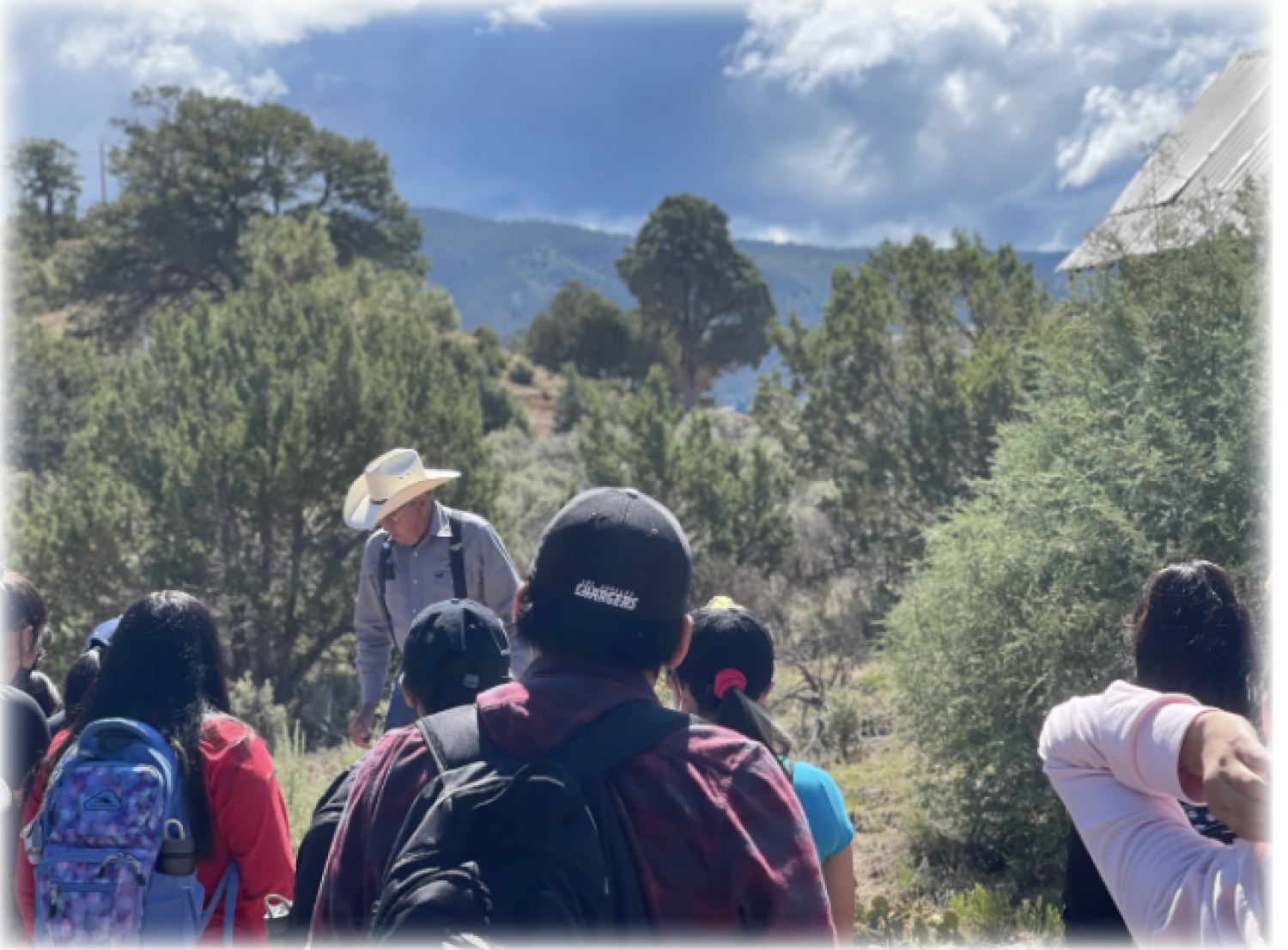Student Voice as a Guiding Principle in School District Reform

This past summer, Graduate Researcher Kate Baca and Dr. Michelle Renée Valladares of the Research Hub for Youth Organizing at the University of Colorado Boulder co-created a six-week summer institute with Cuba New Mexico Independent School District (Cuba ISD). At the institute, students were asked to engage with different research mediums in order to better understand the context of education, its history and the present equity goals within Cuba ISD. Towards that end, students put forth their recommendations, featured in a new National Education Policy Center policy memo, Centering Students’ Past and Present to Advance Equity in the Future. This memo aims to be a launching point for future debate and discussion in Cuba ISD, and to provide district and state leaders more broadly with a succinct summary of recommendations directly from student researchers. The memo includes 11 recommendations in five broad categories, summarized below.
Category #1: Re-envision and expand mental health services for Cuba ISD students. The first recommendation is to create more robust programming for mental health services, both during and beyond the calendar school year. Students described appreciating the mental health services they access throughout the school year, however, they reported the absence of resources during the summer, motivating the request for expanded mental health. Building on that, the second recommendation is to bring culturally relevant and creative mental health support into the schools and community. Students recommended increases in behavioral circles, healing and restorative justice circles and support groups for students, therapeutic service animals, more opportunities to go on hikes and meditation-rooms.
Category #2: Create and ensure access to creative learning and community building spaces. The third recommendation is to expand formal and informal sports activities across Cuba ISD and the Cuba community. Student researchers aimed to increase club and intramural sports, the number of varsity high school teams and informal spaces to be active for their broader community and across all grade levels. The fourth recommendation is to increase the number of and access to activities that connect to students’ interests and identities. Student researchers called on Cuba ISD leaders to create and fully fund new spaces that help students explore their interests and identities. Examples include a drawing class, theater productions, regular science class field trips as well as a Gay Straight Alliance (GSA) or Gay, Lesbian and Straight Education Network (GLSEN). The fifth recommendation is to increase flexible public transportation options for students to participate in these sports and creative spaces.
Category #3: Build stronger student-teacher relationships and support Cuba ISD teachers. The sixth recommendation is to create opportunities for meaningful relationship building between students and teachers. Cuba ISD students want more time to build authentic relationships with their teachers throughout the school day to understand their teachers as people with lives outside of the classroom. This includes more opportunities for mentorship and ongoing support for planning college and career options. The seventh recommendation is to increase teacher salaries, and give them time to succeed at all parts of their job. Cuba ISD students feel that their teachers- like all teachers- have large workloads and should be paid to reflect the critical roles they are fulfilling in students’ lives.
Category #4: Re-envision and expand ongoing college access pipelines. The eighth recommendation is to create a stronger, more supportive college-going culture in Cuba ISD. Students are asking for help navigating the often-convoluted structures of college application and matriculation. They also want more opportunities to attend college fairs, learn about the colleges and universities their teachers attend and strategies for people from rural low-income communities adjusting to living in a new space. The ninth recommendation is to provide more opportunities to visit local universities and colleges. Students are largely unaware of what life on a campus might look like and they see ongoing college visits as a way of creating a stronger pipeline from high school into institutions of higher education.
Category #5. Build more opportunities for student voice and authentic engagement with decision making. The 10th recommendation is to create a student policy committee that regularly meets with adult decision makers to share student expertise and create ongoing communication between students and the administration. Students are clear that they want to increase student rights and their voice on their campuses. More than just planning activities, the student policy committee would benefit from the district sharing information about current education challenges or future education reforms. The 11th and final recommendation is to increase opportunities for student voice in daily decisions throughout the year. Student researchers advise Cuba ISD leaders to increase the number of times and ways for students to share their ideas and for adults to implement student ideas throughout the day and year. Students should not have to attend a formal decision-making body to feel heard; listening to students should be a part of the culture of every Cuba ISD space.
The gaps these students identified suggest where school systems need the most support, and their solutions provide creative ways to get there. You can find Centering Students’ Past and Present to Advance Equity in the Future, by Kate Baca and Michelle Reneé Valladares, at: https://nepc.colorado.edu/publication/cuba

